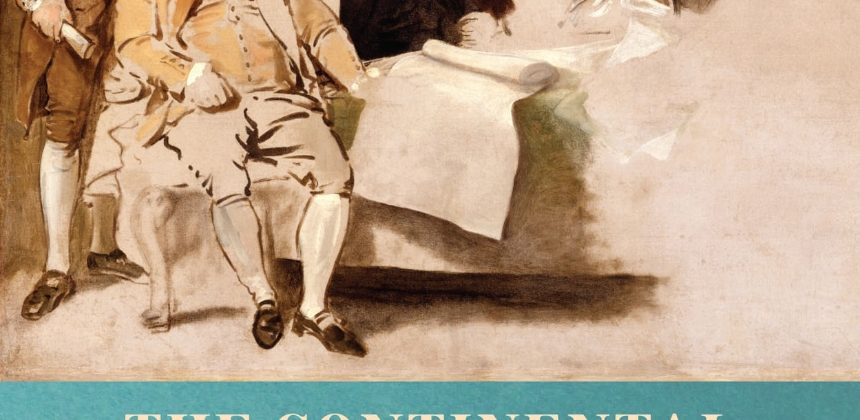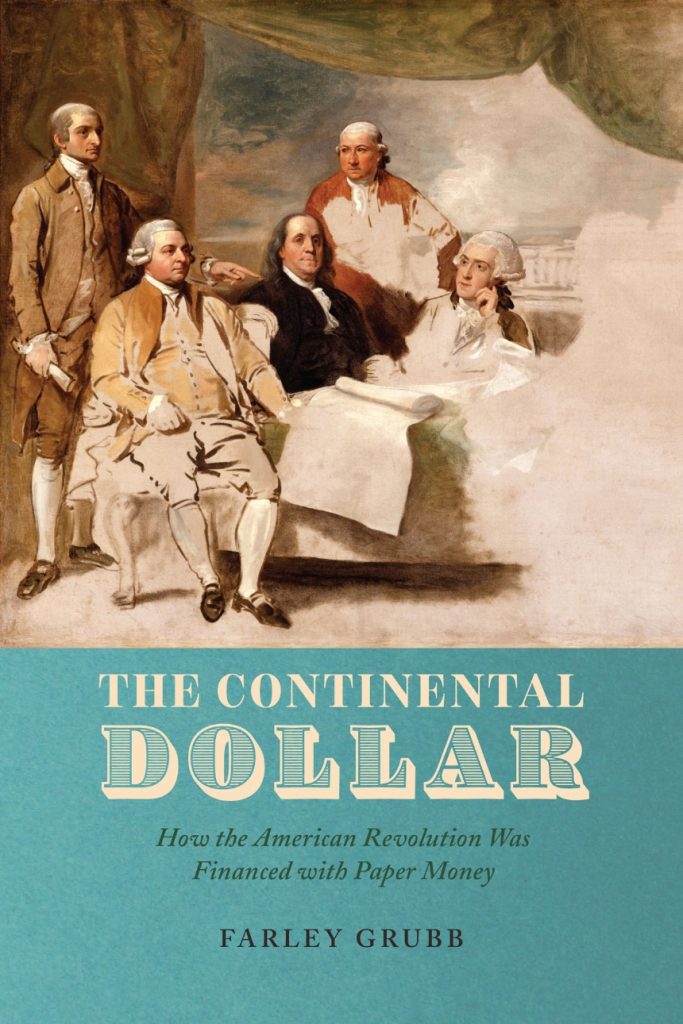

Farley Grubb is Professor of Economics at the University of Delaware and Research Associate at the National Bureau of Economic Research (NBER). This interview is based on his new book, The Continental Dollar: How the American Revolution Was Financed by Paper Money (University of Chicago Press, 2023).
JF: What led you to write The Continental Dollar?
FG: First, I could not fit the core arguments and analysis into a journal article length piece. There were too many interwoven and cross-cutting elements that needed to be included in a related fashion to make sense of any one aspect of the story. It needed to be book length to coordinate all the elements. Second, at every turn as I researched the topic, I felt like we had been told an incomplete, superficial, and often erroneous story about the Continental dollar and how it performed. The data used in past works were inconsistent—being all over the map, and the economic thinking relied too much on modern models that were not adapted to the institutions of the era. Those two things troubled me, and I wanted to fix them.
JF: In 2 sentences, what is the argument of The Continental Dollar?
FG: The Continental dollar was intentionally designed by the Second Continental Congress to function as a zero-coupon bond and not a fiat currency, and everyone knew and understood what that meant. New emissions of Continental dollars accounted for 77 percent of congressional spending through 1779, and Continental dollars did not depreciate in terms of expected loss of face-value principle before 1779.
JF: Why do we need to read The Continental Dollar?
FG: How can we know where we are going if we do not know where we have been? We can see both genius and folly unfold at the beginning of the country, how the founding fathers struggled to make things work, and how easily they could mess it up. Pre-banking-era finance is strange and interesting in its own right and requires some novel thinking to understand how it performs.
JF: Why and when did you become an American historian?
FG: By third grade I only wanted to read history books such as about Abraham Lincoln and Civil War battles (it was also at that time the centennial of the Civil War). I refused to read the books about Dick and Jane and Spot the dog that the teachers wanted us to read. I liked stories about real events and real people. In college, ancient history was my love as I wanted to learn how civilizations unfolded—how they rose and fell. But I also knew that if I wanted to do history as I saw it, I needed tools such as economic modeling structures and philosophic analytical techniques to make sense of history. So, I added economics and philosophy majors to my college history major. I wanted to go deeper than just being a reporter of historical things I found. Finally, Stanley Kubrick’s 1975 film Barry Lyndon made me want to focus on 18th century history thereafter (and it was the bicentennial of American independence at that time).
JF: What is your next project?
FG: A book length project call Benjamin Franklin: On Money. It will pull together all of Franklin’s speeches and writings on money and analyze their logic and importance. In many ways, Franklin understood colonial monies better than anyone else, including David Hume and Adam Smith.
JF: Thanks, Farley!